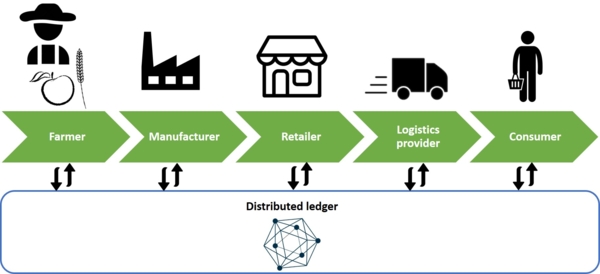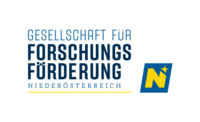Data Analysis and Visualization for Blockchain-based Supply Chain Management
Background
The digital transformation of supply chains creates new challenges for a safe, secure and efficient data exchange among supply chain stakeholders (e.g. suppliers, wholesalers, certification and audit organizations, customers, various service providers). There is particularly a lack of consumer-oriented information in food industries about the food products, like technical processes, shelf-life and quality aspects, their origin and sources of certification. Additionally, the required certification and auditing processes don’t always ensure credibility and trust to consumers (Project Governance, 2015). Integration of distributed ledger technology (or blockchain) can potentially simplify the time- and resource-consuming certification processes, making some processes and actions of stakeholders more transparent. It is a challenge to establish an end-to-end supply chain visibility which would allow to show the path of product delivery from raw material state until the delivery to the final consumer, which is also an evident competitive advantage. Establishing such transparent product and value flows is one of the key challenges within digital transformation of supply chains. Tracking and tracing of products in supply networks and appropriate data sharing among the stakeholders can be a challenging task for companies but has the potential to considerably reduce costs and risks.
Project goal
The expected target is to investigate applications of blockchain or distributed ledger technology (DLT) for traceability and transparency of food supply chains with the aim to contribute towards understanding and achieving a more traceable, effective and transparent supply chain network.
The challenges of traceability and transparency in supply chains can be resolved by integrating a decentralized and distributed ledger, which records transactions using cryptographic methods to protect the entries in the network from tampering, unplanned revision or mismanagement. The chronological record of all transactions allows to monitor historical product state change and share such information among the involved stakeholders. The interdependency of the parties as well as the decentralized data exchange and data storage network ensures protection from data loss, tampering or damage, since each party in such network can serve as an independent data-storage and data verification party or such decentralized data-storage medium can be provided by a DLT. Some of the key benefits of blockchain or DLT integration in the supply chains are the enhanced data protection and security, providing evidence of data ownership and product origin, and improving cost effectiveness of transactions within the digital supply chain network.
The project goal is to develop a concept and further a prototype solution to provide traceability and transparency of food supply chains, addressing the challenges of integrating the Internet of Things (IoT) for capturing real-time product state and architecture deployment for automated data exchange among key supply chain stakeholders. An additional goal is to investigate and evaluate various performance measures of food supply chains with the integration and implementation of DLT.
Methods and expected outcomes
The planned initial stage is the development of a concept, which then will be enhanced and developed with a prototype. The defined project goals and research questions will be evaluated in one or several case studies in the food domain with empirical, qualitative and quantitative investigations. The highlight will be placed on the consumer integration in the evaluation of various aspects within the scope of food provenance and authenticity verification.
Links
Austrian Blockchain Center (ABC)
Reference
Project Provenance Ltd (2015): “Blockchain: the solution for transparency in product supply chains”. Provenance White Paper, https://www.provenance.org/whitepaper
Pulications
You want to know more? Feel free to ask!
Digital Technologies Research Group
Institute of Creative\Media/Technologies
Department of Media and Digital Technologies
- WU Vienna (Supervisor Univ.-Prof. Dr. Gerald Reiner, Institute for Production Management)




